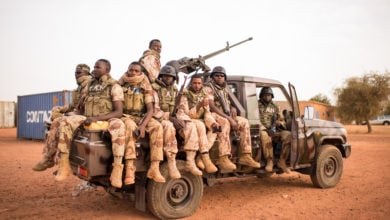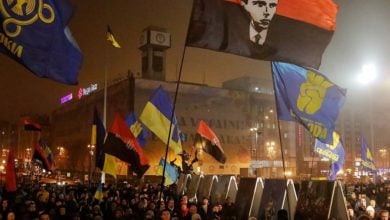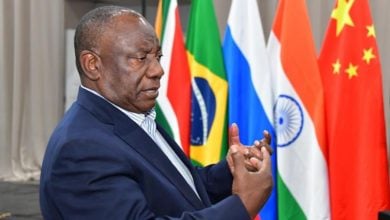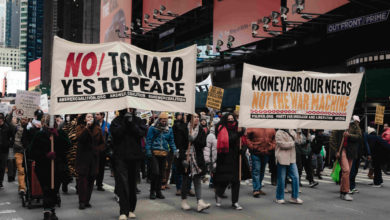
Elections were recently held in Ukraine as well as Donetsk and Luhansk – which earlier this year had declared themselves independent “people’s republics” in response to the U.S.-backed coup. The election held in the areas controlled by the government in Kiev took place Oct. 26, while the rebels conducted their polls Nov. 2.
This came amid intensifying fighting in southeastern Ukraine despite a declared truce. Tensions have continued to escalate as the military stalemate drags on.
Fighting began shortly after the elected Ukrainian president, Viktor Yanukovych, was overthrown in a coup backed by mass demonstrations that were oriented towards the imperialist European Union. Neo-Nazi organizations played a considerable role in the overthrow of Yanukovych – it was a fascist paramilitary group that ultimately stormed the presidential palace – and have retained considerable influence since.
Reacting to this shocking development, Russian-speaking sections of Ukraine refused to recognize the new regime in Kiev. Crimea successfully sought to integrate into the Russian Federation, while the Donetsk People’s Republic and Luhansk People’s Republic have declared independence.
Minsk Protocol unravels
In an effort to end the civil war, an agreement was signed in early September by representatives of Russia, Ukraine, the DPR, LPR and Organization for Security and Cooperation in Europe – an intergovernmental group that includes both Russia and the western imperialist countries. This agreement is known as the Minsk Protocol. It called for the cessation of armed conflict, the dissolution of the anti-Kiev militias, decentralization that would see more power vested in the local authorities of eastern Ukraine and the deployment of OSCE monitors along the Russia-Ukraine border.
This was not the first attempt made to establish a lasting ceasefire and a political reconciliation process, and the Minsk Protocol as well ultimately failed to stop the fighting. Clashes continued on a daily basis, although with fewer casualties, and then escalated in late September with a large-scale battle over control of the Donetsk International Airport.
The media in the west, and especially the United States, attribute the resumption of fighting to a diabolical plan by Russian president Vladimir Putin to annex eastern Ukraine as well as other parts of Eastern Europe and initiate a “new Cold War.” This is totally baseless.
As it has demonstrated several times, the Russian government is perfectly willing to support the cessation of hostilities in return for political concessions from the Kiev regime. The economic disruption caused by the war and subsequent western sanctions are not beneficial to Russia. Subsequent events on the battlefield prove that Putin is not some puppet master controlling events – the DPR and LPR are capable of making independent political decisions.
Neither is Russia the aggressor. It was U.S. and European imperialism that initiated the conflict with its sponsor of the overthrow of the Yanukovych government. Putin and the Russian state are loyal to the Russian capitalist class, but their interests and material needs are distinct from the imperialist states that attempt to subjugate the entire world. The Russian government is attempting to safeguards its national sovereignty in response to a NATO attempt to encircle the country.
Elections signal a new phase in the conflict
Although the corporate media unanimously praised the Ukrainian opposition forces as “pro-democracy” during the presidency of Yanukovych, the elections conducted by the Kiev government were held in an atmosphere of severe repression and saw low turnout – just barely over 50 percent.
Opponents of the post-coup government are targeted for persecution, and fascist paramilitaries routinely carry out acts of violence. In perhaps the most horrific instance, 38 anti-fascist activists who had sought refuge in a local trade union headquarters were burned to death by a pro-Kiev mob on May 2. As the union building erupted in flames with the activists inside, their assailants spray painted slogans supporting the Galician SS – a notoriously armed force of Ukrainians who fought alongside the Nazis in World War Two – and chanted “Burn, Colorado, Burn!” in reference to supporters of the eastern separatists.
The Party of Regions – Yanukovych’s party – refused to participate in the election because it did not recognize its legitimacy. Despite an attempt to outlaw it in late July, the Communist Party of Ukraine did participate, but was unable to break through the wartime propaganda regime and did not receive enough votes to enter parliament.
Instead, right-wing, pro-western parties won nearly every seat and a coalition government committed to the war in the east is certain. The leading parties support European-imposed austerity measures that will devastate workers of all national backgrounds.
A week later, elections were held simultaneously in the Donetsk and Luhansk People’s Republics. Turnout was reportedly high, and the existing leadership was reelected with wide margins. Aleksandr Zakharchenko was reaffirmed as the leader of the DPR, while LPR leader Igor Plotnitsky won the election there.
Russia officially recognized the Kiev-sponsored elections. The government said that it “respects” the DPR and LPR elections, but noted that this is distinct from “recognizing” them.
It appears that the period following the elections will be defined by continued conflict. Three days after the DPR and LPR elections, the Kiev government announced that it was cutting off payment of social benefits to rebel-controlled areas. The next day, it declared a de-facto border in the east that Ukrainian citizens will need a passport to cross. The greater the opposition to U.S. and European imperialist meddling, the more likely a resolution favorable to poor and working people becomes.





